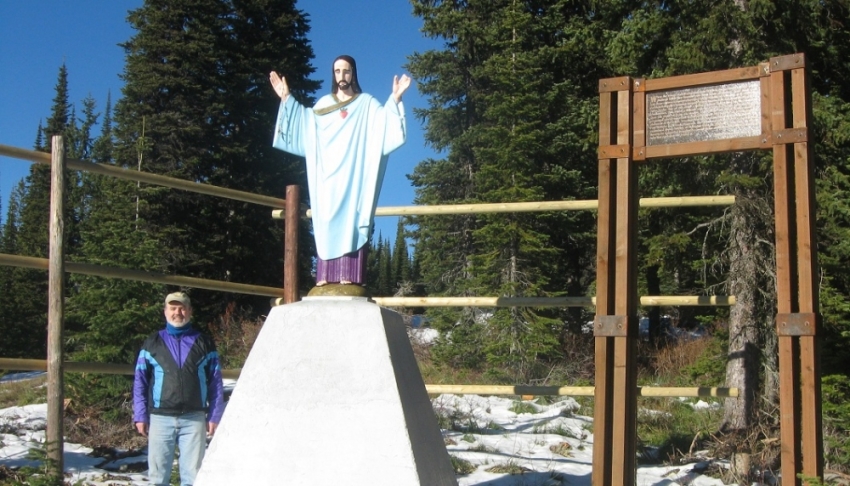Atheist Group Relents in 'Big Mountain Jesus' Suit After 5 Years

After a five-year legal battle, a national atheist group has dropped its lawsuit against a decades-old Jesus statue located on federally-owned land in Montana.
The Freedom From Religion Foundation failed to file an appeal with the Supreme Court by its deadline this week over "Big Mountain Jesus," located near Whitefish Mountain Resort.
In August, a Ninth Circuit Court of Appeals ruled that the presence of the religious statue on federally-owned land was constitutional, citing the 60-year-old figure's historical and cultural value to the area.
The appeals court ruled at the time that "the government's continued authorization of the statue on federal land does not violate the Establishment Clause," adding that Big Mountain Jesus was valuable to the community for a variety of nonreligious reasons, including "the statue's cultural and historical significance for veterans, Montanans, and tourists; the statue's inclusion in the National Register of Historic Places; and the government's intent to preserve the site 'as a historic part of the resort.'"
"[…] there is nothing in the statue's display or setting to suggest government endorsement; the twelve-foot tall statue is on a mountain, far from any government seat or building, near a commercial ski resort, and accessible only to individuals who pay to use the ski lift," the decision added.
The Wisconsin-based Freedom From Religion Foundation has sought to remove the statue for the past five years, arguing that its presence on public land, although it is privately maintained, is a violation of the separation of church and state.
The monument, which features a large figure of Jesus with his arms outstretched, was dedicated to World War II veterans over 60 years ago by the Knights of Columbus. It still has the WWII dedication and is maintained by a private entity.
The FFRF foundation said in a previous press release that it believes allowing the statue to remain would serve as a sanctioning of religious icons on all public land.
"The Government's argument, reduced to its essence, otherwise would mean that religious iconography on public land is acceptable if supported by popular interest groups. The Establishment Clause, in other words, would be subject to majoritarian or popular demand. That, however, is not the lesson of our Constitution — nor a paradigm for historical success, as worldwide religious conflict attests. Religious icons on public land cannot be constitutionally salvaged by local celebrity status," the FFRF said in a February 2014 press release.
In May 2014, Eric Baxter, senior counsel with the Becket Fund for Religious Liberty, the groups defending the statue, told The Christian Post that the lawsuit over the monument shouldn't have started in the first place.
The lawsuit "should have been dismissed from the beginning," Baxter said at the time. "The statue has been on the mountain for 60 years without a complaint. Freedom From Religion Foundation spent more than six months trying to find someone who was willing to sue."
"That should tell the court that those who finally agreed to sue had not been injured in a way that justifies a lawsuit," Baxter added.



























